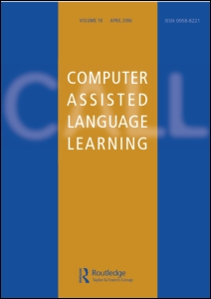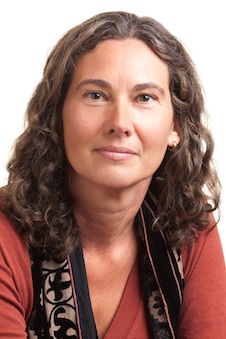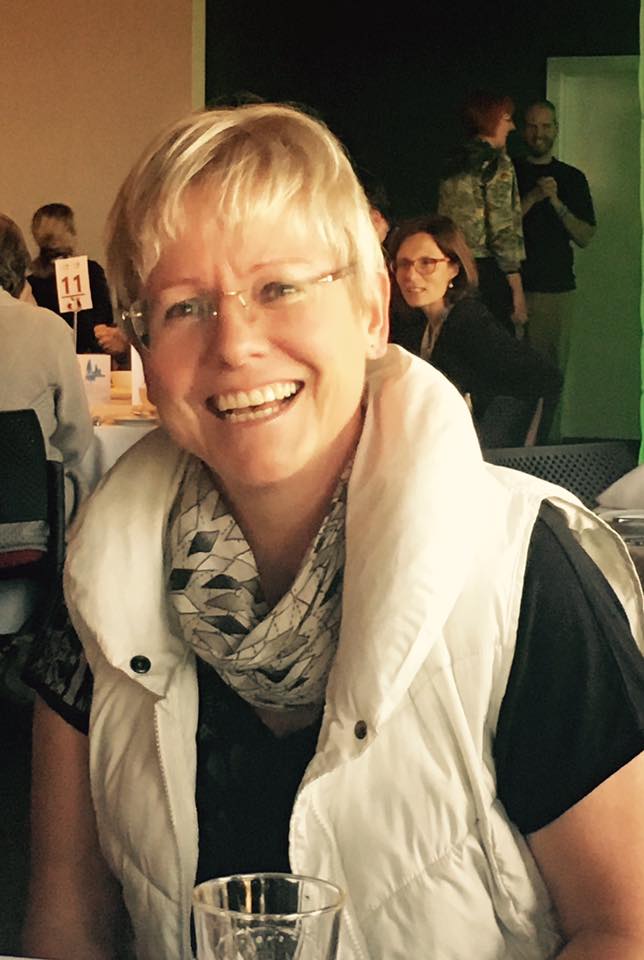
Social CALL The XXth International CALL Research Conference
Keynote Speakers
 |
Antonie Alm (University of Otago, New Zealand), associate editor of the CALL Journal |
|---|---|
| Biography: Antonie Alm (PhD, UCLA) is a Senior Lecturer in Languages and Cultures at the University of Otago in New Zealand where she teaches German language and culture, Computer-assisted language learning and Intercultural Communication. Her research on topics of social media in language learning, L2 motivation, learner autonomy and informal learning have appeared amongst others in Innovation in Language Learning & Teaching, JALT CALL Journal,
Zeitschrift für Interkulturellen Fremdsprachenunterricht and Multilingual Matters. Dr Alm is on a number of editorial review committees and works as an Associate Editor for the CALL Journal as well as the JALT CALL Journal. She is also the senior vice-president of the New Zealand German teacher association. |
|
| Joined Abstract: Over the past five decades our field has moved through several distinctive phases: from its behavioristic beginnings, via communicative and integrative CALL, to social CALL. We will share our respective CALL trajectories up until today, with reference to these milestones, before honing in on the multifarious dimensions of Social CALL and their affordances and limitations.Our starting points are the mid-late nineties: in very different educational and geographical contexts we were drawn to using technology for the learning and teaching of German and the cultures of German-speaking countries. We were looking for ways of making the learning process a social experience for our students, who were either physically remote from native German speakers and with no access to authentic German language resources or - for a variety of reasons including personal circumstances such as health or age, for example - had chosen to study languages at a distance. The trajectories of our social CALL experiences have taken many turns over the years, reflecting shifting language-learning paradigms and technological developments. Today, as possibilities for social CALL seem endless, we are on different paths, yet we both question the impact of the social on the learner’s ability to critically engage with their learning.We have moved from a paradigm of scarcity to a paradigm of abundance. One of the side effects, if not risks for CALL, or indeed any form of technology-mediated learning, is to become anti-or unsocial. In the second half of our talk we will explore how this trend manifests itself and consider explanations for this development. We will share with the audience what inspired us to consider what we maybe don’t hear or read about, namely issues of inclusion and exclusion in CALL, and what CALL researchers and practitioners may need to draw out more to get to the core of Social CALL. We will also challenge the audience to give thought to what we - the CALL community - can and should be doing in an era of clashes between abundance and superdiversity on the one hand, and countervailing political attempts to stem the free flow of people and communications on the other. This will ensure that language learners have the skills that prevent them from jumping into superficial conclusions about who others are and how they express themselves. Skills that encourage them to consider past as well as present literacy practices, and to take a critical stance towards today’s media. We will foreground the need for a critical lens for thinking about ourselves, and for engaging with otherness both off- and online. As CALL researchers and practitioners of language learning and teaching, we will argue, we need to find ways of supporting our learners more than just linguistically in the current socio-political climate, or indeed, in any socio-political climate. This should entail learning how to use digital technologies for public engagement, global citizenship and the enhancement of democracy – for better lives and more sustainable futures. |
 |
Mirjam Hauck (Open University), president of EuroCALL |
|---|---|
| Biography: Dr. Mirjam Hauck is a Senior Lecturer in the School of Languages and Applied Linguistics at the Open University/UK and a Senior Fellow of the UK’s Higher Education Academy. She has written numerous articles and book chapters on the use of technologies for the learning and teaching of languages and cultures covering aspects such as task design, tutor role and training, and intercultural communicative competence. She presents regularly at conferences, seminars and workshops worldwide. Between 2014 and 2016 she was on an invited secondment to the SUNY Center for Online International Learning (COIL) in NYC where she was responsible for the professional development of faculty across SUNY colleges and their international teaching partners. She is the President of the European Association for Computer Assisted Language Learning (EUROCALL) and first training officer of UNICollaboration, a cross-disciplinary professional organisation for telecollaboration and Virtual Exchange in Higher Education. She also serves as Associate Editor of the CALL Journal and is a member of the editorial board of ReCALL. More recently her scholarly work and publications have centred on the impact of mediation and the relevance of critical digital literacy skills in collaborative online learning and teaching across the curriculum. | |
| Joined Abstract: Over the past five decades our field has moved through several distinctive phases: from its behavioristic beginnings, via communicative and integrative CALL, to social CALL. We will share our respective CALL trajectories up until today, with reference to these milestones, before honing in on the multifarious dimensions of Social CALL and their affordances and limitations.Our starting points are the mid-late nineties: in very different educational and geographical contexts we were drawn to using technology for the learning and teaching of German and the cultures of German-speaking countries. We were looking for ways of making the learning process a social experience for our students, who were either physically remote from native German speakers and with no access to authentic German language resources or - for a variety of reasons including personal circumstances such as health or age, for example - had chosen to study languages at a distance. The trajectories of our social CALL experiences have taken many turns over the years, reflecting shifting language-learning paradigms and technological developments. Today, as possibilities for social CALL seem endless, we are on different paths, yet we both question the impact of the social on the learner’s ability to critically engage with their learning.We have moved from a paradigm of scarcity to a paradigm of abundance. One of the side effects, if not risks for CALL, or indeed any form of technology-mediated learning, is to become anti-or unsocial. In the second half of our talk we will explore how this trend manifests itself and consider explanations for this development. We will share with the audience what inspired us to consider what we maybe don’t hear or read about, namely issues of inclusion and exclusion in CALL, and what CALL researchers and practitioners may need to draw out more to get to the core of Social CALL. We will also challenge the audience to give thought to what we - the CALL community - can and should be doing in an era of clashes between abundance and superdiversity on the one hand, and countervailing political attempts to stem the free flow of people and communications on the other. This will ensure that language learners have the skills that prevent them from jumping into superficial conclusions about who others are and how they express themselves. Skills that encourage them to consider past as well as present literacy practices, and to take a critical stance towards today’s media. We will foreground the need for a critical lens for thinking about ourselves, and for engaging with otherness both off- and online. As CALL researchers and practitioners of language learning and teaching, we will argue, we need to find ways of supporting our learners more than just linguistically in the current socio-political climate, or indeed, in any socio-political climate. This should entail learning how to use digital technologies for public engagement, global citizenship and the enhancement of democracy – for better lives and more sustainable futures. |
 |
Gu Yueguo (Beijing Foreign Studies University), president of ChinaCALL |
|---|---|
| Biography: Gu, Yueguo, M.A., Ph.D., Dr. Lit. honoris causa (all from Lancaster University), is a research professor, the Head of the Corpus Linguistics Department, and Director of Corpus and Computational Linguistics Research Centre of the Chinese Academy of Social Sciences. He is also the holder of Special Titled Professor, Director of China Multilingual Multimodal Corpora and Big Data Research Centre, Beijing Foreign Studies University, and Director of Aging, Language and Care Research Centre, Tongji University/CASS. His research interests include pragmatics, discourse analysis, corpus linguistics, rhetoric and online education. His latest publications include The Routledge Handbook of Pragmatics (co-edited), The Encyclopedia of Chinese Language and Linguistics (co-edited, 5-volumes, Brill), Using the Computer in ELT, Pragmatics and Discourse Studies, and Chinese Painting. He has also edited several series of textbooks, and collections of academic papers such as Initial Exploration of Online Education, Second Exploration of Online Education. He is a member of the editorial boards of the Journal of Pragmatics, Pragmatics, Text & Talk, Corpora, Pragmatics and Society, International Review of Pragmatics, Journal of Language and Politics, Language and Dialogue, and Journal of Chinese Language and Discourse. He was the winner of five national top research prizes, and was awarded a K. C. Wong Fellow of the British Academy in 1997. He is a holder of many honorary posts, most noticeably special professorship of the University of Nottingham, Adjunct Professor of West Sydney University, Visiting Lecture Professor of Peter the Great St. Petersburg Polytechnic University, and Distinguished Research Fellow of Sydney University. (Personal website: www.multimodalgu.com) | |
| Abstract: Transformative learning, conceptually speaking, consists of two essential component: transform and learning, while it, executively speaking, operates in two different but closely interconnected domains: the individual personal domain and the public educational system domain. This paper focuses on the special sector of the first domain – individuals aging 60 and living far beyond. The learning for the late adulthood is generally covered under the banner of lifelong learning. Lifelong learning, as shown in Jarvis (2004, 2005, 2009) , is often treated, both conceptually and syllabus-wise, as an extension of and supplement to what is provided on traditional campus. Some retirees in China, for instance, attend 老年大学 for the courses originally offered to college or university students. The objective of this paper is twofold. One is to explore the nature as well as practice of learning for 60-and-above individuals. The message to take home is: They need to self-transform themselves in worldviews, life styles, knowledge stores, skill buildings, etc. The other is to critically review the existing practice of lifelong learning provided by educational systems. The message to take home is: The existing lifelong learning programmes must be transformed, some areas quite drastically too, to meet the ever-changing needs of the aging and aged population. This is a continuation of my previous two studies (Gu, 2018, 2019). Hence the burden of proof is offered there. |
| Countdown | |||
| 0 | 0 | 0 | 0 |
| Days | Hours | Minutes | Seconds |
| Important Dates |
|---|
| 4 April 2019 |
| Social Programme launched |
| 8 May 2019 |
| Early-bird registration deadline |
| Conference dates |
| 10 - 12 July 2019 |